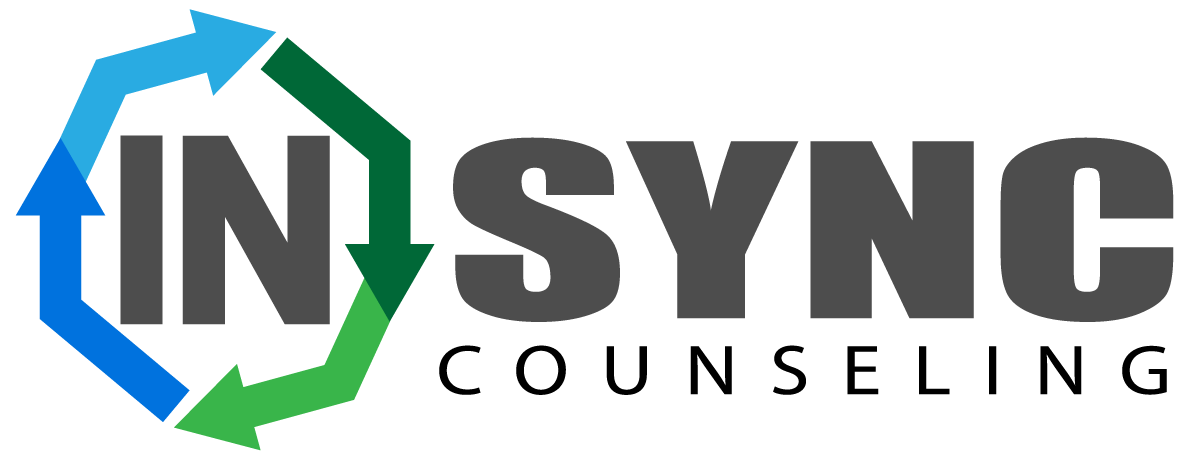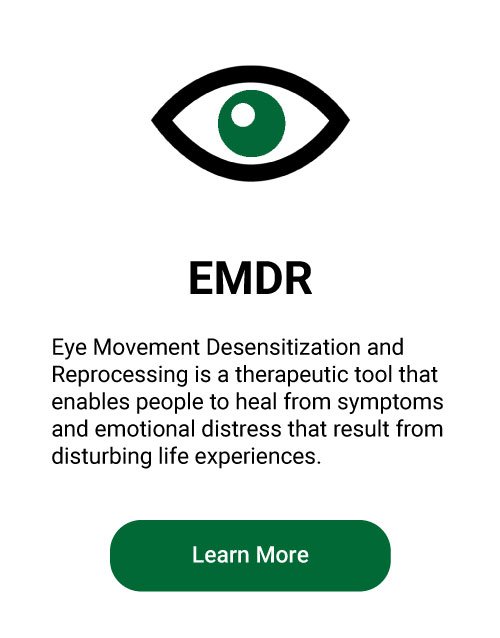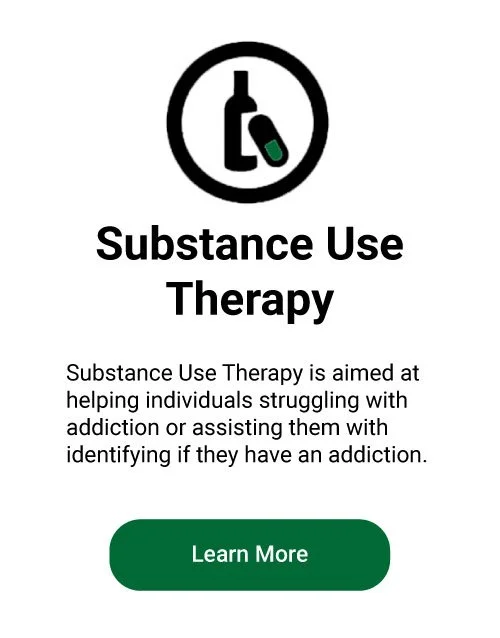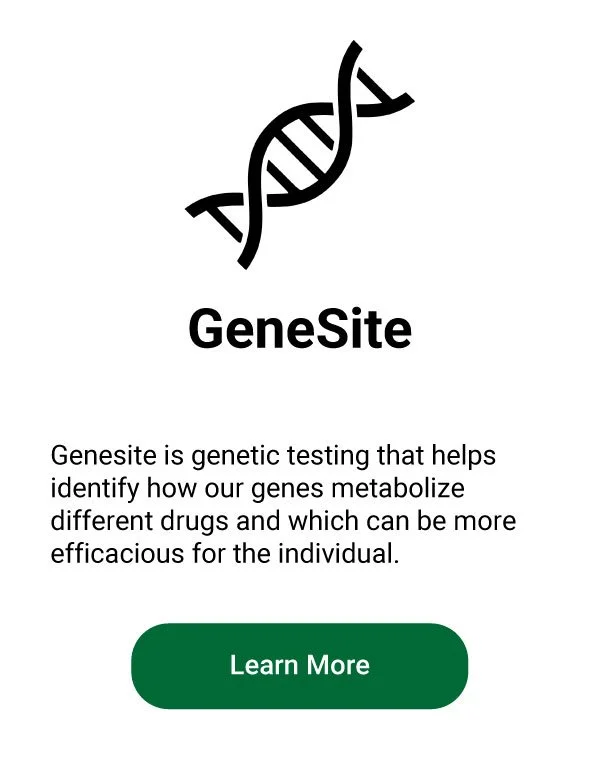
Our Services
Click a service to learn more. You can also request or schedule an appointment below for counseling, medication management, or with our wellness providers. We are here to help!
EMDR
EMDR (Eye Movement Desensitization and Reprocessing) is a therapeutic tool that enables people to heal from symptoms and emotional distress that result from disturbing life experiences. EMDR therapy shows that the mind can heal from psychological trauma similar to the body recovering from physical trauma by allowing a person to process traumatic memories so that they no longer cause discomfort. Through the process of EMDR, a person doesn’t simply forget that the traumas occurred but can dissolve the negative and intense emotions and thoughts associated with the memory and heal in a healthier and more productive manner.
*Imagine trauma like a picture on a TV screen, through EMDR, the mind’s image and associations of the trauma (like the TV screen’s image) get harder to picture and no longer carry the same emotional, physical, and psychological attachment.
TMS
TMS stands for Transcranial Magnetic Stimulation. It is a non-invasive neuromodulation technique using short magnetic pulses over the scalp inducing electrical currents in the neurons of the cortex modulation brain function to treat psychiatric diseases, more specifically, depression. TMS has been shown to produce changes in the activity of neurons in the regions of the brain involved in mood regulation, such as the prefrontal cortex. Each magnetic pulse passing through the skull induces brief activity in brain cells. This is like physical therapy for the neurons, improving the level of activity/function in areas that have not been functioning well. Through this method, relief occurs from symptoms of depression.
*We have partnered with TMS Arkansas at our Conway location, please visit their website for more information on TMS or call today to schedule a consult at 501-313-2678. https://tmsarkansas.com/
Medication Management
Whether you’re living with anxiety, depression, grief, trauma or even life transitions creating a fluctuation of mood and symptoms, our team will ensure an accurate diagnosis and a thorough medication management plan. Our goal is to take the stress out of managing your mental wellness so you can live more in sync with who you are, and your values, and move toward your goals.
The medication management services at In Sync Counseling will start with an intake that will include a psychiatric evaluation (about an hour long). A Psychiatric Nurse Practitioner will use this evaluation to pinpoint a diagnosis and start a treatment plan. Based on your diagnosis, your provider may prescribe medication or adjust your current medication. They will then work with you to ensure that the medication has the desired effect, adjusting the dosage or prescription if necessary, along with collaborating with other professional groups if needed (nutrition, PCP, specialists, etc).
After the first appointment/intake, medication check-up appointments will range from 1 time monthly to every 3 months depending on symptoms, frequency, and intensity. These appointment times vary from 15 minutes to 30 minutes and are decided upon by you and your provider.
Overall, our mental health team will ensure that the medication is delivering a positive outcome. We encourage you to be open throughout treatment and receive the support that you need. Please note that our providers are limited in practice authority and cannot prescribe stimulants but can continue for 6-month time periods if the patient is seeing an MD for these medications. Our providers also do not encourage the use of benzodiazepines (i.e Xanax, Clonazepam, Diazepam) and/or other controlled substances in the management of mental health disorders and do not frequently prescribe these or continue these but safely help you reduce the dependency on these medications. If you are currently using these medications, please note this may not be the clinic to serve your mental health needs.
*Please note, we do not accept refill requests and you will need to be seen by your provider prior to receiving refills.
Group Counseling
Decades of research have shown group therapy to be as effective if not more effective in some cases as individual therapy. The difference with group therapy is connecting to other individuals just like you and me sharing strength, encouragement, and hope. Connecting to others in knowing we are not alone is a powerful tool that is significant to group therapy. We often find a safe and supportive space to share in our journey and hear others’ journey along the path to healing. Successful groups screen individuals and develop cohesion within the group to make sure benefits are recognized. Groups are often closed at In Sync Counseling, meaning that once the group starts, new members are not added to the group. A group often consists of 6-12 individuals and topics can include:
Grief and loss
Depression
Anxiety
Tween
Teen
And more…
Relationship Counseling
Couples therapy is beneficial for relationships of any age, culture or orientation; be it a happy couple that wants to seek greater intimacy and satisfaction, or a distressed couple dealing with issues such as infidelity, addiction, financial strain, or frequent conflict. Committed relationships require regular care and maintenance to prevent the buildup of unhealthy patterns and unresolved issues. Couples therapy provides a safe and supportive space for both of you to explore your emotions, resolve your differences, and deepen your love and connection.
Areas sometimes explored in couples therapy:
Emotional distance and communication breakdown
Infidelity, jealousy, and loss of trust
Disputes around parenting, in-laws, money, etc.
Addiction
Financial distress or redundancy
Sex Therapy
*We have a Board-Certified Sex Therapist that is passionate about making sure couples can achieve their desired level of sexual intimacy specifically after sexual trauma has occurred, medical issues have diminished sexual desire, ability, attraction, or any number of alternative experiences. Sex therapy creates a safe space to rediscover intimacy after trauma or life changes.
Individual Counseling
The nature of therapy is that of a series of services rather than a single service. There are many factors that can affect how frequently therapy sessions occur, including the level of distress you're experiencing, how quickly you want to move towards your goals, and cost of treatment. Therapy works best in the beginning for sessions to occur weekly, then, as the circumstances/symptoms ease, session frequency can taper off until they are no longer needed at all. Your therapist can assist you with identifying your needs in this process. Our clinicians have a variety of specializations and niches that allow them to be “experts” in their area of practice. Upon choosing the best therapist for you, we encourage you to visit with one of our knowledgeable administrative staff or look at our team page for a full biography and description of specializations.
Minor Counseling
If your child, tween, or teen has mental health needs, giving them access to quality care now can prevent them from facing more serious mental-health concerns later on. With this approach, the parent is also included in services as needed to best support the needs of the child and assist them in achieving optimal well-being.
Several of our amazing therapists specialize in tweens and teens. This is a special population to “handle with care” as these are unique times in their life when navigating interpersonal relationships can be very challenging and confusing. Sometimes tween even feel “stuck” in between 2 worlds of being “older” yet “younger”. Our focus is to encourage tweens/teens on how to develop healthy and integrated identities while navigating the emotional complexities of their current space and the world around them while empowering themselves.
Family Counseling
Family counseling often serves as an adjunct to individual and/or child counseling services. Family counseling often involved understanding, educating, and assisting the family in identifying barriers or blocks to healthy functioning. Family counseling hopes to involve the entire immediate family as deemed appropriate by the therapist and can address items such as:
developing healthy boundaries
improving communication
defining someone’s role within the family
improving family dynamics and relationships
providing strength and coping tools for family members
addressing dysfunctional interactions
improving the family’s problem-solving abilities
difficulty communicating or expressing emotions
conflicts between siblings
inconsistent parenting
marital problems
developing a functional and healthy relationship following a divorce
adapting to a major change
dealing with a chronic illness or death in the family
Testing and Assessment
Your care provider has access to a variety of tools for psychological assessment to explore ADHD, ASD, learning disabilities, and other social-emotional-psychological needs. These assessments allow psychologists and qualified professionals to determine the specific diagnoses, needs, and treatment plans for each individual. Psychological assessments are tailored to each client, with potential assessment information including the following:
Mental Status Exam
Intelligence Testing
Academic Testing
Observations
Parent and Teacher Rating Scales/Interviews
In-depth Record Reviews
Educational Records
Medical Records
Substance Use Therapy
Substance Use Therapy is aimed at helping individuals struggling with addiction or assisting them with identifying if they have an addiction. Treatment can occur in a variety of settings, take many different forms, and last for different lengths of time. Because drug addiction is typically a chronic disorder characterized by occasional relapses, short-term, one-time treatment is usually not sufficient. For many, treatment is a long-term process that involves multiple interventions and regular monitoring. If you are struggling with substance use or behavioral addictions, our team approach can help you understand addiction and set up a comprehensive plan to become successful in the maintenance of the disorder.
If you are struggling with identifying if addiction therapy is necessary for you, ask yourself some questions below:
Do you prioritize substances over other time and financial commitments?
Does the perceived reward you experience from substance use make it difficult for you to recognize the consequences of substance use?
Does substance use make it difficult for you to keep up with your commitments to family, friends, work, or education?
Have you ever decided to stop substance use, but the anxiety of not using the substance makes it difficult or impossible for you to stick with your decision?
Do you detox yourself from substances only to revert back to the old behaviors and binge?
* If you answer yes to any of the above questions, you may be struggling with addiction.
The main goal of addiction therapy is to help patients maintain their sobriety and to develop the skills to conquer relapse before it occurs. And, if it does occur, have the tools to get back up and try again. Some of the ways that ongoing therapy can help you through addiction include:
Educate you to recognize and avoid triggers.
Develop skills to cope with stress and cravings.
Avoid relapse and maintain sobriety.
Reroute the award center of the brain to areas other than drug use.
If part of your plan, at times connect with others to understand you are not alone and helpful ways sobriety has been maintained for them.
Meet our expert Kelly to learn more!
Disruptive Event Management
“A critical incident is sudden death in the line of carrying out day-to-day duties, serious injury from a shooting, a physical or psychological threat to the safety or well-being of an individual, business, or community regardless of the type of incident. Moreover, a critical incident can involve any situation or event faced by emergency, public safety personnel (responders) or employees that causes a distressing, dramatic or profound change, or disruption in their physical (physiological) or psychological functioning”. – Psychology Today
Research shows that early intervention shortly after a disruptive event (ideally within 24-72 hours) can make a positive impact on identifying impacted individuals, connecting them to resources, and normalizing/educating them on potential reactions in the short term they may face and when to seek professional services. Early intervention often minimizes the need for future intervention.
There are several of us trained in Emergency Response from small to large scale and disruptive event management. We have traveled across Arkansas, the United States, and within our community to support individuals, management, and companies’ return to pre-incident functioning.
Care for Healthcare Professionals
Several of our therapists particularly love working with healthcare professionals because of the meaningful work you do and how we can relate. It is particularly fulfilling to care for those who care so much for others. It can feel strange to prioritize yourself and make time for your own needs, but it is worth it. We want to support you and often find healthcare professionals lean towards independence and hesitate to rely on others. You are used to being the caregiver–often not only at work but in your personal lives and relationships–and it is a whole new skill to learn to receive that can forever change your life and relationships for the better. This is an important time to receive care and support. Counseling and check-ins can help you guard against depression, anxiety, and burnout as you face high stress and pressure at work.
Biofeedback
Biofeedback is a mind-body technique that helps people learn to control involuntary bodily functions, such as heart rate, breathing, and muscle tension, to improve their health and performance:
How it works
During a biofeedback session, a healthcare provider uses noninvasive devices to measure and display your body's functions on a monitor. You learn to make conscious changes to these functions with the help of a monitor and a biofeedback therapist. Eventually, you can achieve success without the monitor or devices.
What it's used for
Biofeedback is used to treat a variety of conditions, including high blood pressure, tension headaches, migraines, chronic pain, and urinary incontinence.
Benefits
Biofeedback can help you relieve pain, reduce tension, and improve your overall health.
DOT Services
Are you a DOT employee who had a non-negative on an alcohol or drug screening and need a DOT Substance Abuse Professional Evaluation before returning back to work safely?
The initial SAP evaluation is scheduled for up to two hours. A follow-up session will be scheduled after completion of all recommended counseling/education services/treatment program(s). Evaluations will take place either in Conway or Greenbrier, Arkansas. Call for pricing information or submit an inquiry below.
GeneSite
GeneSite is genetic testing that helps identify how our genes metabolize different drugs and which can be more efficacious for the individual. Here’s how this works:
GeneSite helps reduce multiple medication trials or if you have had multiple medication trials will reduce continuing to have medication trials.
GeneSite helps you get more of the benefits of the drugs while hoping to reduce adverse effects and will cover the current medical medication(s) you are already on.
Costs could be from 0-$399, insurance will be verified and the company will contact you to let you know PRIOR to the test being performed.
30 days after the test is completed, the patient will get a card they can carry in their wallet that will discuss their genes. Reports can be shared with their provider.
Care Credit
CareCredit is different from a regular credit card. This is a unique payment option that In Sync Counseling offers for out-of-pocket costs associated with healthcare expenses (deductibles, copays, testing/assessment, medications, and more).
Use it to pay for out-of-pocket expenses not covered by medical insurance, and special financing options are available that you may not be able to get with other cards.
Pay for health, and wellness care at over 250,000 enrolled providers across the nation. Once you’ve applied, you can use it again and again at any location that accepts CareCredit.
With shorter-term financing options of 6, 12, 18, or 24 months no interest is charged on purchases of $200 or more when you make the minimum monthly payments and pay the full amount due by the end of the promotional period. If you do not, interest is charged from the original purchase date.*
CareCredit also extends longer-term healthcare financing for 24, 36, 48, or 60-month periods with Reduced APR and Fixed Monthly Payments Required Until Paid in Full. Purchases of $1,000 or more may be eligible for a 24 months offer with a 14.90% APR, a 36 months offer with a 15.90% APR or a 48 months offer with a 16.90% APR. Purchases of $2,500 or more may be eligible for a 60 months offer with a 17.90% APR.**
For complete details, see the CareCredit account agreement within your application. Ask our receptionist at In Sync Counseling to find out which promotion is right for you. You do not need to select a promotion before you apply.
**Subject to credit approval.
Mental Health Coaching
Coaching helps people navigate challenges and move forward with confidence. Compassionate mental health coaching can help individuals, couples, and families find balance, healing, and hope. Our coaching services are guided by a Board Certified Master Mental Health Coach and Board Certified Professional Christian Coach. Learn about our mental health coach HERE.
We all have goals we want to reach, challenges we’re striving to overcome, and times when we feel stuck. Partnering with a coach can change your life, setting you on a path to greater personal and professional fulfillment.
Mental Health Coaching
Mental Health Coaching is a form of strengths-based support for persons living with mental illness or those desiring to improve their mental well-being. Coaches help clients develop a healthy balance in life and achieve internal and relational harmony with the goal of a satisfying and fulfilling life. Mental Health Coaches give guidance in decision-making, provide support in navigating mental health difficulties, offer assistance in establishing recovery plans, and support curiosity and insight into improved mental well-being.
Mental Health Coaches are not licensed mental health providers and do not diagnose or treat mental health illnesses and disorders. Coaches help individuals find resources for licensed professional care when needed. A Mental Health Coach supports licensed providers by helping their clients manage difficult symptoms, build recovery support, comply with treatment plans, find ways to obtain and maintain stability, work on life goals such as relationships, work, and education, and find purpose for living. Mental health coaching focuses on achieving any goals important to the client, not just recovery-related goals. Mental health coaching emphasizes honoring values and making principle-based decisions, creating a clear plan of action, and using current strengths to reach future goals. The coach provides accountability to help the client stay on track.
Christian Life Coaching
A Christian life coach is someone who helps and encourages their client through personal or professional challenges from a faith-based perspective. The coach might integrate Biblical principles, draw from Scripture, or take time during the session to pray with the client or clients. In Christian coaching, coaches can help individuals or couples by helping them find God’s vision for their life, His desire for their marriage, and His plan to overcome the obstacles that keep them from living the life God has called them to live.
A Christian life coach seeks to help people set and reach goals that are in keeping with the life God has called them to. In the coaching relationship, the client is the expert. The coach – who practices active listening and asks thought-provoking questions – guides the course of the conversation.
A Mental Health Coach or Christian Coach can help in many ways. Reach out to your life coach if you would like support in any of the following areas of your life:
Decreasing stress
Discovering and achieving your goals and dreams
Managing a mental health illness or disorder
Growing self-confidence
Honing skills and improving performance
Achieving Career development
Experiencing recovery from divorce or marriage reconciliation
Improving finances
Processing grief and loss
Enhancing job performance
Healing from spiritual abuse and gaining spiritual wellness
Attaining health and fitness goals
Clarifying values and aligning behaviors and mindset
Improving marital harmony
Improving relationships
Life Harmony Coaching
A life harmony coach helps clients gain awareness of when their life song is out of tune. The journey into disharmony happens gradually. When in disharmony, we have traveled years making choices that have entrenched our patterns of behavior and these patterns aren’t serving us well. This results in spiritual, internal, and relational disharmony. Oftentimes, we find ourselves mentally seeking to resolve an internal dissonance or a relational discomfort without a wise guide. A life harmony coach will hear your story, join your life experience with compassion and empathy, and engage with you as your find your path to harmony.
Creating new pathways to achieve the results you want is the goal of our coaching conversations. This journey affects the way you respond or react to influences in your everyday life and results in developing a new harmonious rhythm allowing internal peace, joy, and hope.
Achieving harmony is a process — not just a destination. Discovering foundational truths that will lead you to harmony is part of the process. While uncovering the source of disharmony can be uncomfortable, you will receive gentle support and compassionate accountability, and you will be empowered to move forward in your journey toward wholeness, freedom, peace, joy, hope, and finally to a place of victorious living. Your song will be in tune!




































